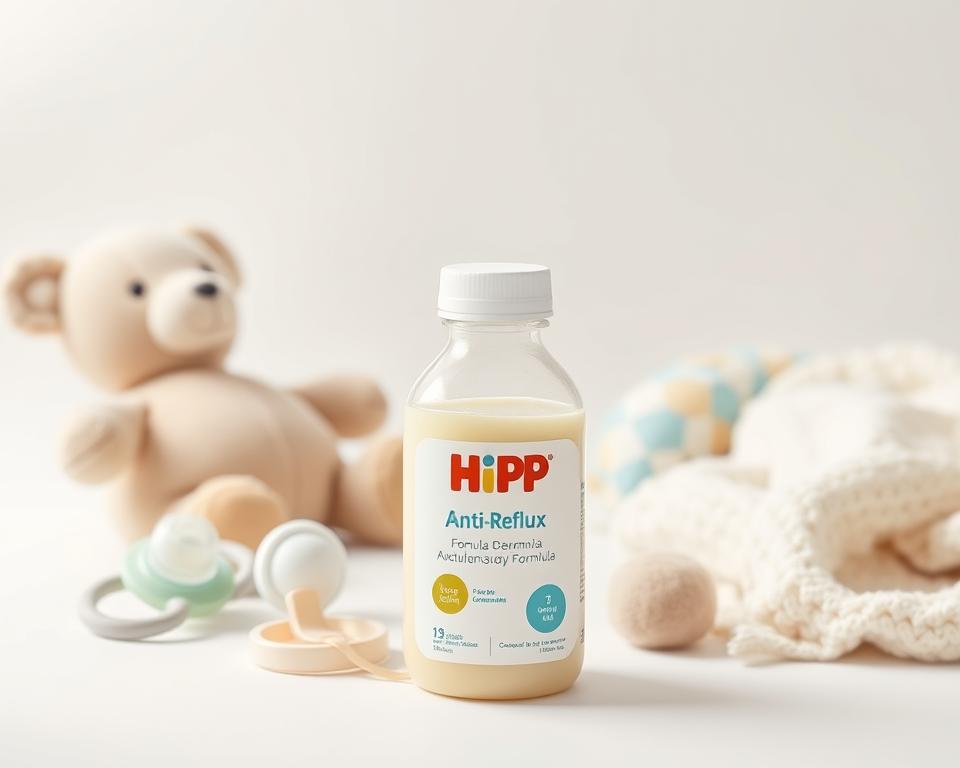Professional Plastic Surgery SEO Campaigns for Your Practice
Do you ever questioned what makes it so that some cosmetic surgeons consistently draw new patients while others find it difficult? Often, the key comes down to targeted marketing—namely SEO services for cosmetic surgery. In this online environment, SEO is absolutely essential for prosperous practices. Professional SEO from a well-known company increases a practice’s digital presence, drawing in potential patients and refining broader marketing activities.
Specialized SEO for cosmetic surgery hones in on key elements. These encompass on-page tuning, thorough keyword research, strategic link building, and robust content marketing strategies. Collectively, these elements boost online presence and channel more relevant users to surgeons’ websites using plastic surgeons SEO. This surge escalates patient acquisition rates considerably.
Principal Conclusions
- SEO is crucial for boosting online visibility for cosmetic surgeons.
- Engaging experienced SEO services can lead to increased patient acquisition.
- A full-spectrum SEO strategy features on-page optimization, keyword research, and content marketing.
- Quality link building plays a major role in securing authority in the demanding cosmetic surgery space.
- Professional SEO services remain custom-fit to match the distinct needs of cosmetic surgery practices.
Recognizing the Necessity of SEO for Cosmetic Surgeons
SEO is indispensable for plastic surgeons aiming to enhance their digital presence among a pool of 11,400+ U.S. professionals. The objective remains to stand apart in a saturated field. A large share of patients now turn to online searches to investigate cosmetic procedures. Indeed, digital channels represent the chief gateway for more than two-thirds of potential patients. An effective SEO strategy for cosmetic surgery drives better search engine rankings, leading to increased inquiries from new patients.
Using SEO services for plastic surgeons ensures they remain ahead of search engine algorithm changes. Staying adaptable is essential for keeping a robust online presence. Sound SEO practices do more than boost visibility; they cultivate trust with potential patients. A prominent search engine position is often viewed as authority. Consequently, integrating SEO into a marketing plan for plastic surgery is indispensable, not just an afterthought.
Why Choose Expert SEO Services for Your Practice
A cosmetic-surgery SEO professional brings critical value to cosmetic surgery practices. With thorough understanding, they develop strategies that address the industry’s unique challenges. Their focus on SEO for plastic surgery guarantees websites perform for crucial keywords and comply with search engine updates.
Passing on SEO tasks permits plastic surgeons to prioritize patient care while lessening marketing headaches. Plastic surgeon SEO specialists use evidence-based strategies to improve online presence. This leads to better search engine rankings and, accordingly, more patients—all and controlling costs.
Receiving SEO advice from experienced pros is crucial for a cosmetic surgery practice’s expansion and endurance in a fierce market. Teams like SEO Marketing Nerds customize their strategies for concrete results. Through specialist SEO programs, practices receive the required tools and know-how for web-based achievement.

Ways SEO Helps Your Cosmetic Surgery Practice
Executing a robust SEO strategy has numerous benefits for cosmetic surgery practices. It significantly increases brand visibility, allowing potential patients to easily find important information. A practice that ranks higher in search results sees more website traffic, resulting in increased conversion rates—turning casual visitors into prospective clients.
An optimized website boosts the user experience by rendering navigation simple and allowing users access information about services effortlessly. This emphasis on the user builds trust. Patients appreciate accessibility and clarity, which fosters a positive relationship.
SEO helps establish credibility for cosmetic surgery practices, giving potential patients confidence in the practice’s quality and reliability. Engaging an SEO expert for plastic surgeons provides customized strategies that augment these benefits and drive significant SEO results for cosmetic surgery—establishing a stronger online reputation.
| Benefit | Description |
|---|---|
| Heightened Visibility | Enhances brand presence online, helping potential patients to find the practice. |
| Higher Traffic | Raises the number of visitors to the website, resulting in more inquiries and bookings. |
| Better User Experience | Makes easier navigation, allowing visitors to access key information about procedures efficiently. |
| Enhanced Credibility | Higher rankings build trust among potential patients, positioning the practice as a reliable choice. |
Key Components of an Impactful SEO Strategy
An efficient SEO strategy for plastic surgeons includes several critical parts that improve a website’s visibility and pull in potential patients. Among these are keyword research, on-page optimization, and focusing on local SEO.
Keyword discovery is fundamental to any SEO effort. It allows cosmetic surgery SEO professionals to pinpoint popular terms related to specific services, making sure the content aligns with potential patients’ search queries.
On-page optimization is equally vital. It entails optimizing page titles, meta descriptions, and headers with targeted keywords. These tweaks assist search engines in comprehending the content better, enhancing rankings.
For cosmetic surgery clinics, local SEO stands out. Many patients look for services nearby. Using Google My Business boosts local visibility, bringing in more geographically relevant patients.
By integrating these elements with help from SEO management firms, a plastic surgeon’s website can see substantial online expansion, leading to increased web traffic.
| SEO Component | Description |
|---|---|
| Keyword Research | Identifying relevant search terms that potential patients use. |
| On-Page Optimization | Adjusting website elements for better search engine ranking. |
| Local SEO | Boosting visibility in local search results through platforms like Google My Business. |
Harnessing Keyword Research in Cosmetic Surgery SEO
Keyword research is essential for any SEO plan, especially in cosmetic surgery. It’s essential for practices to grasp what potential patients are searching for. By identifying the terms used in searches, cosmetic surgery SEO consulting becomes more effective. This knowledge guides choosing keywords that match both the services offered and what patients seek.
Analyzing keyword trends and their search volumes is important. When practices uncover high-ranking keywords like “breast augmentation near me” or “best facelift procedures,” they can better tailor their websites. Using these SEO strategies for cosmetic surgery practices pulls in those searching for relevant information. It boosts search engine visibility, leading to more site visitors.
The impact of a skilled SEO plastic surgeon is immense. They utilize keyword insights to create content that matchess the needs of potential patients. By tackling common inquiries and concerns, this content does more than fosters trust but also puts the practice as a preferred choice.
On-Page Optimization Techniques for Plastic Surgeon Websites
On-page optimization is critical for a plastic surgeon’s website to rank in search engine results. Enhancing title tags and meta descriptions increases visibility significantly. Proper header tags maintain content structured and clear, assisting users and search engines grasp the site’s main topics.
Optimizing image alt texts is another critical task for cosmetic surgery website SEO. It enhances site accessibility and lets search engines understand what each image represents. Producing quality content that answers potential patients’ queries is key. This content should be both informative and relevant to interest visitors and promote longer visits.
Implementing a mobile-friendly design greatly boosts the user experience for those on smartphones and tablets. Such a design results in fewer people leaving the site prematurely and more patient inquiries. Collaborating with an SEO agency specializing in plastic surgery fine-tune these strategies, maximizing the site’s entire online presence.
By employing these on-page strategies, under the guidance of an experienced SEO specialist for plastic surgeons, a website can achieve top positions in search engine rankings. This visibility encourages more patients to explore what the practice offers.
Building Credibility through Strong Link Building
Link building is vital for plastic surgeons to establish online authority and trust. Relevant backlinks from well-regarded sites signal search engines that a practice is reliable. This enhances search rankings and brings in referral traffic.
A variety of strategies contribute to a comprehensive approach. Guest posting permits demonstrating expertise and acquiring valuable links. Teaming up with medical bloggers expands audience reach and increase brand visibility. Additionally, partnerships with health organizations help strengthen a surgeon’s community standing.
Effective SEO consulting for plastic surgeons leverages tailored strategies that prioritize quality link building. A skilled cosmetic surgery SEO company identifies optimal backlink opportunities, making sure each link contributes to credibility, not detracts from it.
Improving Local SEO for Cosmetic Surgery Practices
For cosmetic surgery practices, polishing local search is crucial. It helps plastic surgeons pull in local patients seeking their services. Establishing a solid local presence lets these practices to stand out in a crowded field.
Key elements of local SEO involve setting up Google My Business profiles, ensuring patients locate essential details like contact information quickly. Positive patient reviews boost credibility and attract new patients. It’s critical to maintain consistent NAP (Name, Address, Phone Number) info across all online platforms.
Increasing local engagement through geo-specific content and social media is also advantageous. Working with an SEO agency that specializes in cosmetic surgery provides custom advice and strategies. Committing to local SEO techniques raises practices’ search visibility, enabling potential patients in the area to find their services.
Engaging Patients with Content Marketing
Content marketing is key for plastic surgeons aiming to connect with future patients. By providing insightful articles and blog posts, they showcase their expertise and foster confidence in the community. This strategy directly responds to the typical queries and narratives that interest those contemplating cosmetic surgery.
Video marketing for plastic surgeons is also key, appealing to those who favor visual content. Through videos of procedures, testimonials, and practice insights, they forge an emotional bond with viewers. This blend of content improves cosmetic surgery SEO results, captivating the audience and encouraging social media sharing.
Consistently publishing insightful content positions a practice as a credible voice in cosmetic surgery. When potential patients find informative pieces and captivating videos, they’re prone to book consultations. This results in growth based on informed choices and trust. Centering on content marketing addresses the audience’s interests, increasing search engine visibility.
Expert Video Marketing Strategies for Your Practice
Video marketing for plastic surgeons dramatically increases online visibility. Captivating visuals display procedures, feature success stories, and offer educational content. This approach creates trust and credibility with potential clients.
Optimizing video content is critical for cosmetic surgery SEO. Employing relevant keywords in video titles, descriptions, and tags boosts discoverability on platforms like YouTube and social media. This allows potential patients to easily find the videos they need.
Videos on websites hold visitors engaged, highlighting the practice’s unique capabilities. Short social media clips can trigger shares and discussions, expanding marketing reach. Combining these tactics is crucial for SEO strategies aimed at a strong online presence.
- Engaging procedure explanations
- Patient testimonial videos
- Post-operative care instructions
- Behind-the-scenes content
Applying these strategies boosts patient comprehension and establishes a meaningful connection. A personal touch in videos builds rapport, motivating people to request consultations.
Tracking the Success of Your SEO Efforts
In the field of plastic surgery, SEO success is assessed by reviewing critical metrics. These include organic traffic, bounce rates, and conversion rates, offering insights into user interaction. Leveraging Google Analytics can be crucial, offering data on how visitors engage with your website.
Information gathered from these metrics let practices to fine-tune their strategies effectively. By continually monitoring keyword rankings, areas needing enhancement are pinpointed. This facilitates an ongoing improvement in SEO efforts. The rivalry in cosmetic surgery demands benchmarking against peers to stay ahead.
A clear table can effectively showcase key performance indicators:
| Metric | Description | Importance |
|---|---|---|
| Organic Traffic | Number of visitors coming via search engines | Indicates the scope and effectiveness of the SEO strategy |
| Bounce Rate | Percentage of visitors exiting after viewing only one page | Helps gauge content relevance and user experience |
| Conversion Rate | Percentage of visitors completing desired actions (like booking a consultation) | Indicates the effectiveness of the website in converting visitors into patients |
| Keyword Rankings | Positions of targeted keywords in search engines | Identifies the effectiveness of keyword strategies |
In cosmetic surgery SEO consulting, the attention isn’t limited to metrics to the market competition. By analyzing your practice’s performance against competitors, strengths and weaknesses become apparent. This awareness allows practices to pivot and flourish. Consistent assessment and strategic modifications are crucial for sustainable SEO success in the plastic surgery realm.
Cosmetic Surgery SEO Services: What to Expect
Enlisting cosmetic surgery SEO services offers numerous benefits to medical practices. These begin with a in-depth website examination to uncover current metrics and areas needing improvement. A veteran SEO expert for cosmetic surgery will carry out thorough keyword research—focused on finding the most impactful terms to attract potential patients.
The services include on-page optimization, focusing on key website components. Meta descriptions and headers are optimized to boost search engine visibility. The core of these services is to continuously adapt strategies due to performance insights and evolving market trends.
Integral to these services are consistent performance reports. They offer plastic surgeons clear insights into the effectiveness of their SEO strategies. Such transparency fosters confidence and enables ongoing refinement of their marketing approaches.
Teaming up with a capable SEO agency simplifies digital marketing for plastic surgeons. Ultimately, choosing the right SEO expert ensures your marketing strategies align with your business goals through comprehensive and customized strategies.
Bringing It All Together
For any cosmetic surgery practice aiming to shine online, hiring expert plastic surgeon SEO professionals is essential. They integrate keyword research, on-page optimization, and local SEO into a comprehensive strategy—helping practices outshine their competitors in today’s digital world.
Partnering with reputable SEO management firms lets practices to optimize their website precisely, highlighting their unique services and know-how. Such customization fosters industry trust, paving the way for lasting success.
Adopting these SEO strategies doesn’t just improve online visibility; it also boosts patient interaction. By investing in high-quality plastic surgeon SEO services, cosmetic surgeons position themselves as foremost figures in their specialty.









